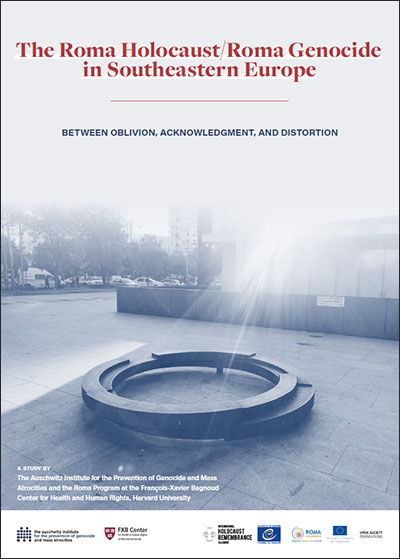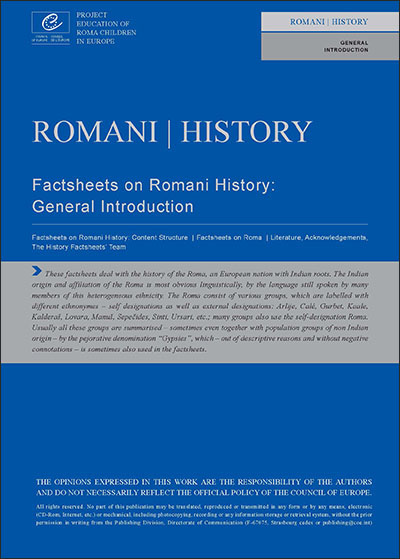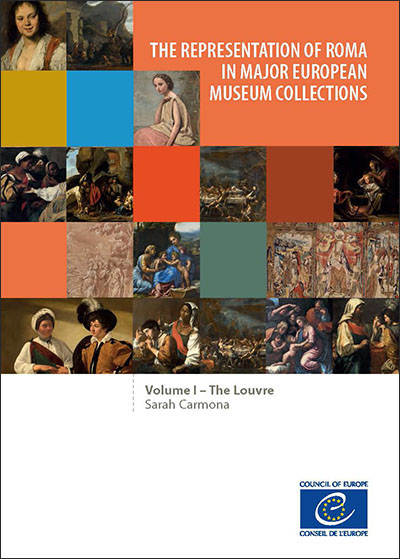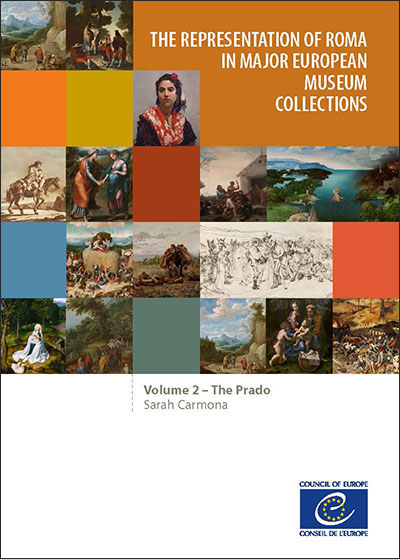History and Holocaust

Roma and Travellers are one of the largest ethnic minorities in Europe. For centuries they have suffered discrimination, racism and persecution, which resulted in the murder of over half a million Roma during the Second World War.
National governments and international organisations are trying to overcome segregation, stigmatisation and marginalisation of Roma and Travellers and to fully integrate them into society. Key to integration is the education of both Roma and non-Roma.
Knowledge of the history and culture of Roma and Travellers is still marginal or inexistent among the general public.
An integral part of this educational process is mutual knowledge about the common history that Roma and Travellers share with all non-Roma in Europe. The horrific crime against Roma has been widely ignored and they have received little or no compensation for their suffering or lost property. It took decades for Roma to go public with their stories, giving testimony of the racist Nazi persecution and demanding justice and recognition as victims of genocide.
Promotion of the teaching of Roma and Traveller history and the Roma Holocaust and inclusion in school curricula and textbooks, also through training of trainers and teachers is one of the expected results of the Council of Europe Strategic Action Plan for Roma and Traveller Inclusion (2020-2025).
A little bit of history
Roma are originally from central/northern India, from where they started migrating westward some 1000 years ago. Their language, Romani, belongs to the Indo-Arian language family and is similar to Sanskrit. The first Roma groups arrived in Europe around the 14th century, possibly earlier. Initial enthusiasm about their arrival, when they were taken for pilgrims or their skilled craftsmanship was appreciated, was followed by a long period of rejection, discrimination, deportation, internment and persecution, culminating in the Roma Holocaust during the Second World War, when some 500 000 Roma and Travellers were murdered in extermination camps and elsewhere. Contrary to common belief, almost all Roma are sedentary, whereas Travellers are a traditionally nomadic ethnic group not ethnically related to Roma.
Important commemorative days are:
- 8 April – International Roma Day
- 2 August – European Roma Holocaust Memorial Day
- 5 November – World Day of Romani Language
The Roma Holocaust
Roma's persecution, which had lasted for centuries, culminated in genocide under the NS regime. Defined as a “problem”, “asocials”, and “racially inferior”, the Roma were arrested and murdered in the German Reich and the German-occupied territories.
Because of the ideological contradictions, Roma's persecution was carried out in a far less coordinated way than that of the Jewish population. For instance, several Roma were still in the army in 1943, even though that very army was involved in the genocide of Roma in the East, and even though thousands had already been killed in concentration camps. These army members were deported directly from the front to Auschwitz, sometimes even with medals of honour. Over half a million Roma were murdered during the Second World War.
The Council of Europe produces a collection of pedagogical fact sheets (available in English, French, Albanian, German, Italian, Romani, Romania, Serbian and Swedish) on Roma history, culture and language. In its efforts to defeat segregation, stigmatisation and marginalisation of the Roma the Council of Europe tries to fully integrate them into society.
An integral part of this educational process of integration is mutual knowledge of the common history of Roma and non-Roma in Europe. The fact sheets are intended to support this process of integration through education.
The Council of Europe, Roma Education Fund and the Georg Eckert Institute for International Textbook Research worked jointly on publication of the analytical report on the representation of and references to Roma in curricula and textbooks currently in use in schools across Europe. The report is a result of a joint project carried out between 2016 and 2019.
The research focuses on curricula and textbooks for history, civics and geography, and comprises both a quantitative analysis showing how often Roma are mentioned, as well as a qualitative overview on the topics that engage with the ethnic minority. With the critical contributions of Roma Education Fund Research Fellows, over 850 textbooks have been examined to evaluate their portrayal of Roma.
The publication “The representation of Roma in major European museum collections. Volume 1 – The Louvre” focuses on what some of the works exhibited at the Louvre Museum tell us about the place and perception of Roma in Europe from the 15th to the 19th century.
Students, teachers, and indeed all other visitors to the Louvre Museum who are interested in this theme, will find detailed worksheets on 15 paintings representing Roma and Travellers, as well as an explanatory booklet, to encourage and foster reflection on their context, whilst creating links with our contemporary perception of Roma and Travellers in today’s society.
Who are the characters wearing their hair in white headwraps in Bosch’s The Haywain Triptych or in The Triumph of Deathby Pieter Bruegel the Elder? And the young Maja, in Goya’s painting A Walk in Andalusia? What characterises Madrazo y Garreta's painting, A Gypsy woman? What do these works of art teach us about the time of their creation? What do they teach us about interactions between the majority population and minorities?
This publication provides answers and explanations while and at the same time questioning the place given to Roma in the Prado collections. This pedagogical guide highlights the perception of Roma among the general public and gives an idea of the complex mechanisms that construct stereotypes underlying discrimination. In addition, it helps the reader to understand the role and contribution of Roma to European history.

Roma Holocaust/Roma Genocide in Southeastern Europe
Between Oblivion, Acknowledgment, and Distortion
The report was produced by The Auschwitz Institute for the Prevention of Genocide and Mass Atrocities, New York, U.S.A. and The François-Xavier Bagnoud Center for Health and Human Rights at Harvard University, Boston, MA, U.S.A. with the financial support of the International Holocaust Remembrance Alliance (IHRA), the Regional Cooperation Council and the Council of Europe.
It is the result of a year-long research project – Countering Distortion of the Genocide of the Roma in Southeastern Europe – A Key Element for Developing Anti-Racism Strategies and Anti-Discrimination Policies and Practices- that covered 11 Southeastern European countries: Albania, Bosnia and Herzegovina, Bulgaria, Croatia, Greece, Kosovo*, Montenegro, North Macedonia, Romania, Serbia, and Slovenia. The report aims to contribute to transnational inclusive dialogue and action regarding Holocaust memorialisation, research, and education as tools to prevent identity-based violence, mass atrocities, and democratic backsliding globally.
*All reference to Kosovo, whether to the territory, institutions or population, shall be understood in full compliance with United Nations Security Council Resolution 1244 (1999) and without prejudice to the status of Kosovo.
Interview with Roma Holocaust survivor, Marin Constantin, who witnessed mass brutality in Nazi-controlled Ukraine during the Second World War
Year : 2011
Country : Romania
Language : Romanian with English subtitles
2 August - European Roma Holocaust Memorial Day










